The Wellness Concept Defines Health As The Absence Of Disease.
The wellness concept defines health as the absence of disease.. This is not only the definition of health from the WHO but also endorsed by the Centers for Disease Control and Prevention. The Constitution of the World Health Organisation WHO states that good health is a state of complete physical social and mental well-being and not merely the absence of disease or infirmity. Based on the WHO.
Definitions of Health 8. A series of successful and continuous adaptation to a continuously changing environment. When philosophers try to define health some of them reach a similar conclusion.
This definition includes mental and social dimensions and moves the. Self-confidence is one characteristic of a person who possesses good emotional health. According to the WHO health is defined as the absence of disease.
The wellness concept defines health as the absence of disease. Traditionally health has been defined in the term of the Presence or absence of disease. Health means absence of disease.
Wellness is the subjective experience of health or felt state of well being Benner. Thus the founders of the World Health Organization defined health as a state of complete physical mental and social well-being and not merely the absence of disease or infirmity. W ilcock et al 1998 as cited by Mackey 2009.
R S Downie for example agrees that the World Health Organisation definition of healthas a state of complete physical mental and social wellbeing and not merely the. The conditions of being sound in body mind or spirit and especially free from physical disease or pain Webster. Biomedical concept Traditionally health has been considered as an absence of the diseases and if someone was free from disease then that person was considered healthy.
Health is a multidimensional concept that includes different interdependent and interrelated aspects ie. WHO encourages an holistic concept of health defining health as a state of complete physical mental and social well-being and not merely the absence of disease or infirmity WHO 1946.
W ilcock et al 1998 as cited by Mackey 2009.
Biomedical concept Traditionally health has been considered as an absence of the diseases and if someone was free from disease then that person was considered healthy. Health is a state of complete physical mental and social well-being and not merely the absence of disease or infirmity. Definitions of Health 8. World Health Organization WHO in 1946. The conditions of being sound in body mind or spirit and especially free from physical disease or pain Webster. This is not only the definition of health from the WHO but also endorsed by the Centers for Disease Control and Prevention. Feeling of health can be with or without disease. A series of successful and continuous adaptation to a continuously changing environment. T o draw a line of demarcation of health from.
Biomedical concept Traditionally health has been considered as an absence of the diseases and if someone was free from disease then that person was considered healthy. In 1948 the World Health Organization WHO defines health as a state of complete physical mental and social well-being and not merely the absence of infirmity and disease. Biomedical concept Traditionally health has been considered as an absence of the diseases and if someone was free from disease then that person was considered healthy. R S Downie for example agrees that the World Health Organisation definition of healthas a state of complete physical mental and social wellbeing and not merely the. This is not only the definition of health from the WHO but also endorsed by the Centers for Disease Control and Prevention. World Health Organization WHO in 1946. T o draw a line of demarcation of health from.
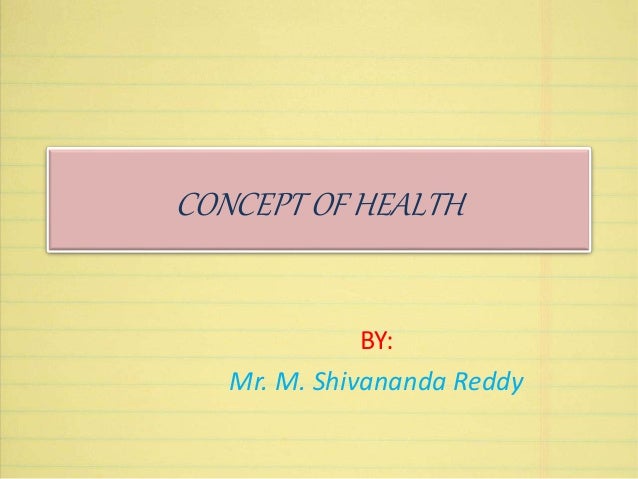
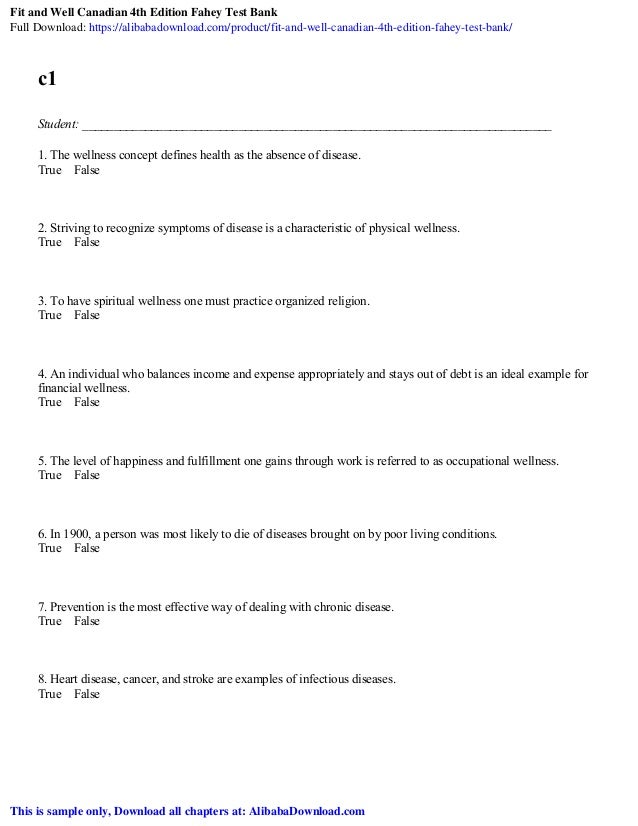

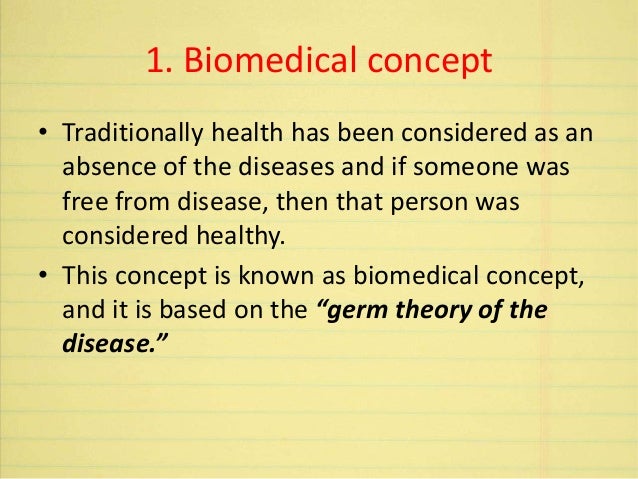











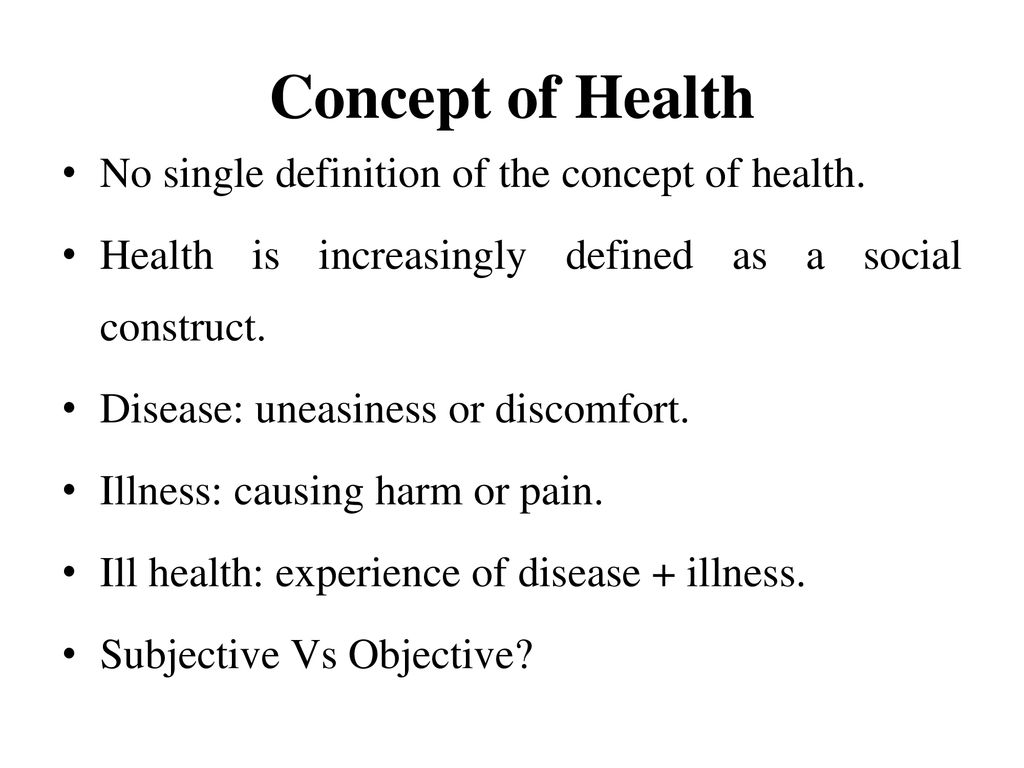
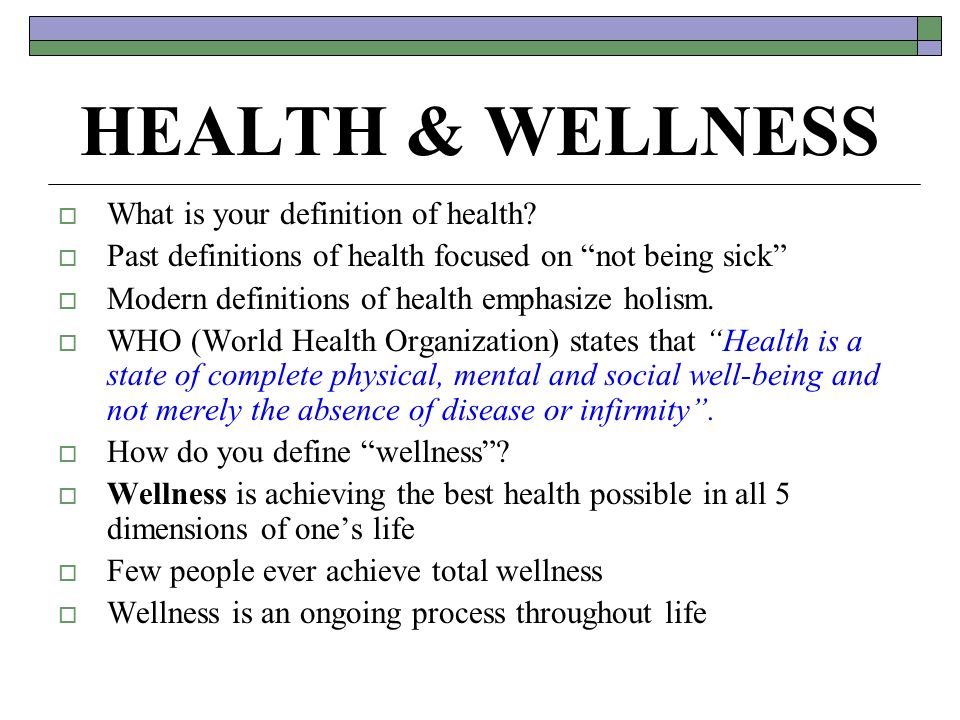
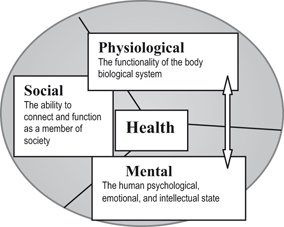

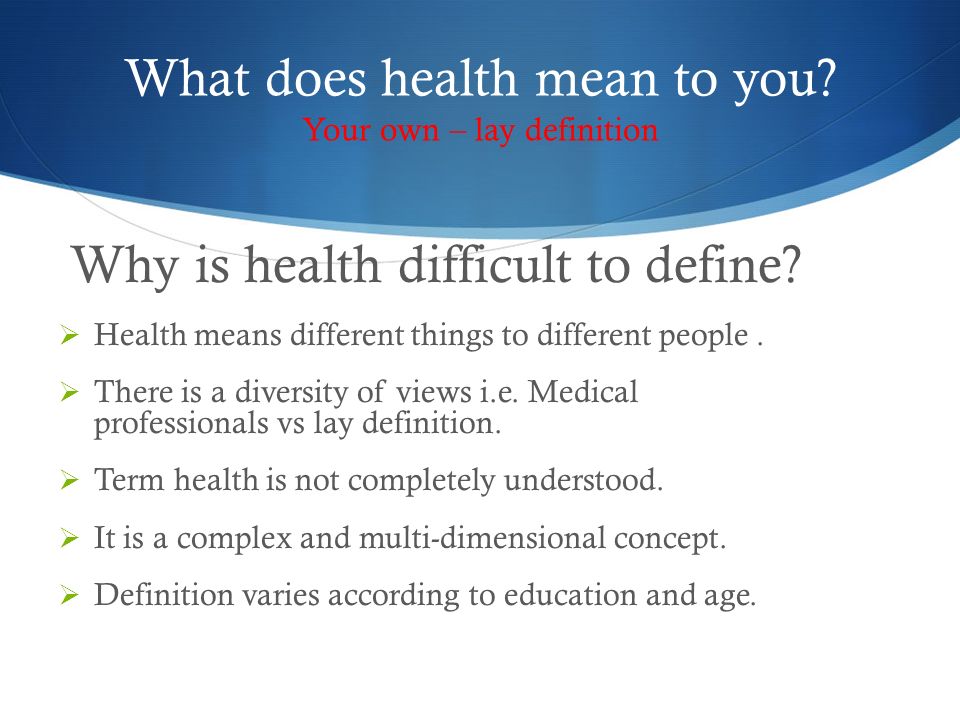

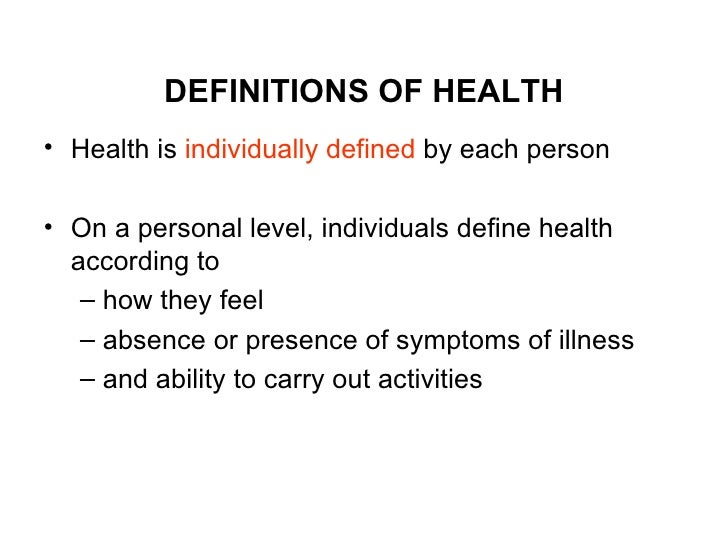






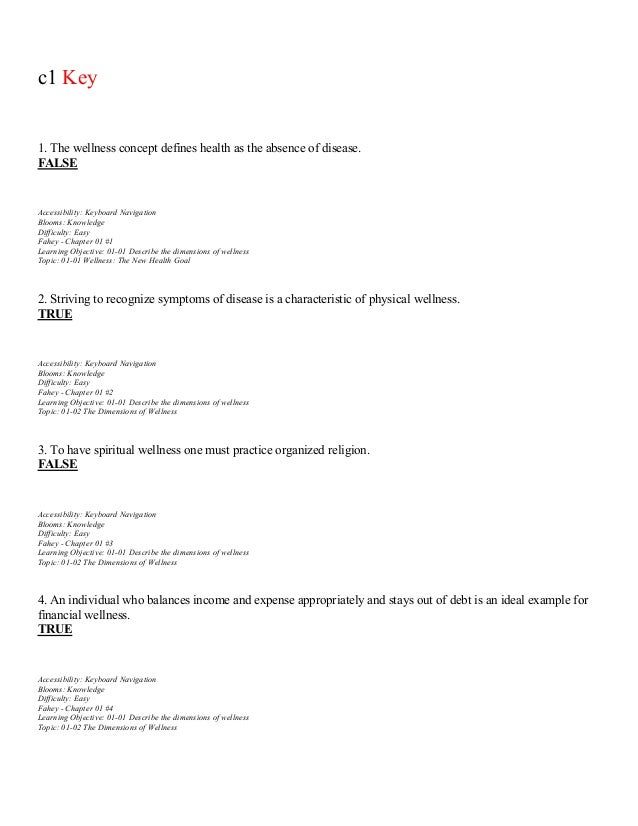
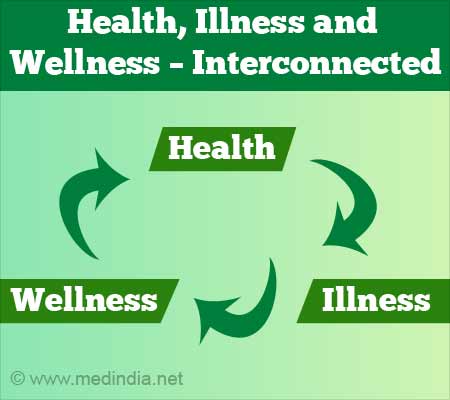



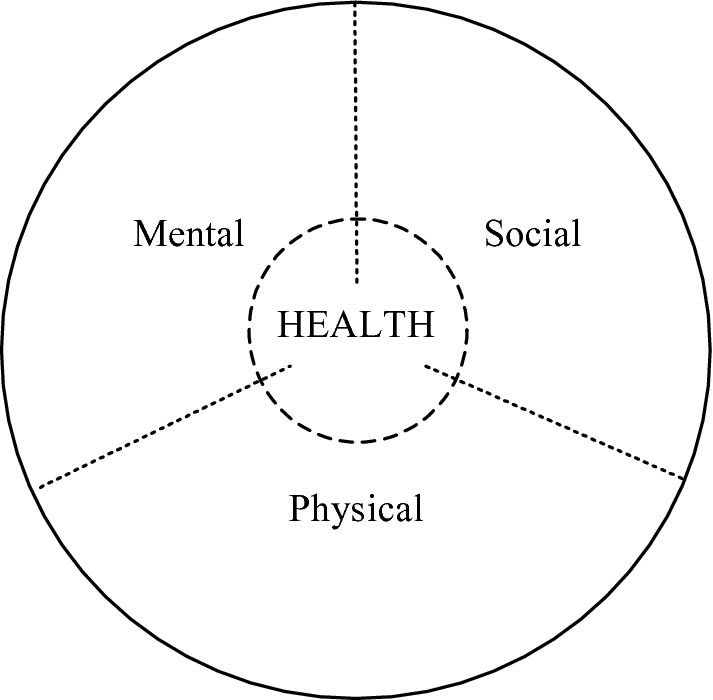





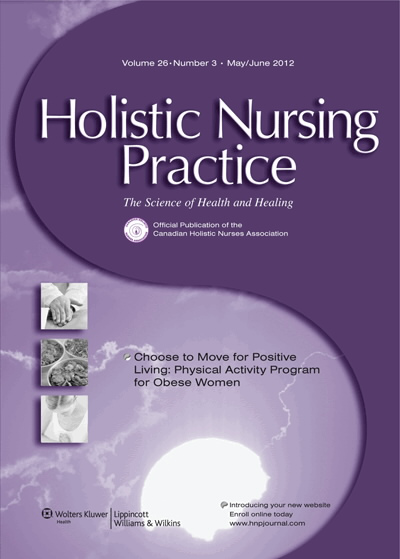
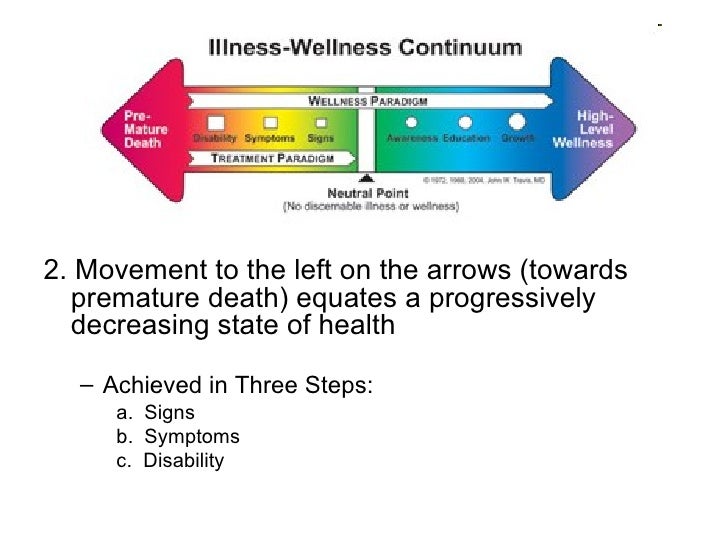

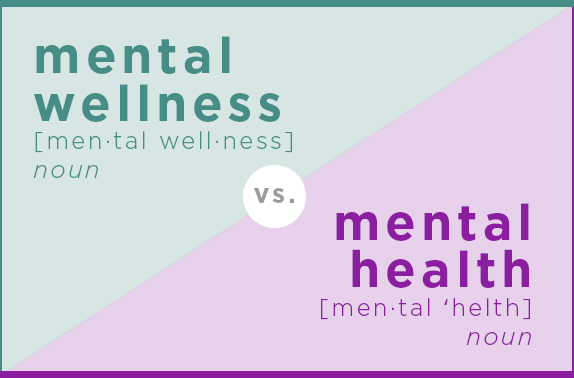

Post a Comment for "The Wellness Concept Defines Health As The Absence Of Disease."